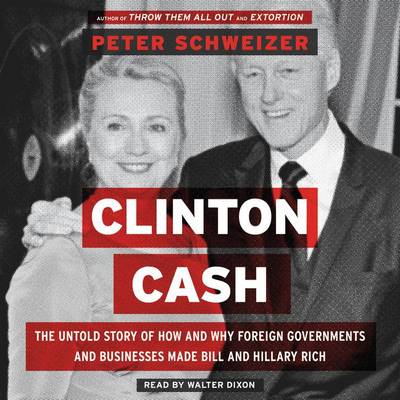From Chapter 1...
The law dictates how much politicians can collect in campaign contributions, limits their ability to make money on the side, and requires the disclosure of those contributors. Hopefully, politicians are also limited to some extent by their conscience. A sense of decency and good judgment ought to prevent politicians on both sides of the aisle from engaging in certain transactions--even if they think they can get away with it.
But while there is ample debate about which transactions should be limited and how, there is near-universal agreement that the game, however muddy, should be exclusively played by Americans. For this reason, it has long been illegal for foreigners to contribute to US political campaigns. In 2012 two foreign nationals challenged the constitutionality of that law. The US Supreme Court decided 9–0 declaring the law not only constitutional, but eminently reasonable.
The Clintons, however, often take money from foreign entities. And that money, donated to the Clinton Foundation or paid in speaking fees, comes in amounts much larger than any campaign contribution. Indeed, the scope and extent of these payments are without precedent in American politics. As a result, the Clintons have become exceedingly wealthy.
The big question is whether taking such money constitutes a transaction. The Clintons would undoubtedly argue that it does not. The evidence presented in this book suggests otherwise.
- ISBN10 006240637X
- ISBN13 9780062406378
- Publish Date 5 May 2015
- Publish Status Active
- Publish Country US
- Publisher HarperCollins Publishers Inc
- Imprint HarperAudio
- Edition Unabridged edition
- Format Audiobook (MP3)
- Duration 5 hours and 27 minutes
- Language English
